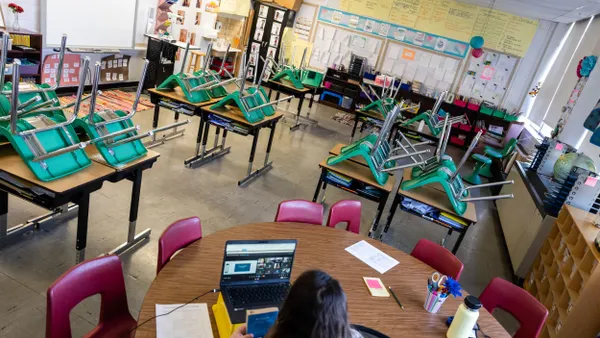Dive Brief:
-
California became the 26th state to require a personal finance course for high school graduation with Gov. Gavin Newsom’s signing of AB 2927 in late June.
-
The law requires districts to offer a stand-alone, semester-long course in personal finance at every high school starting in the 2027-28 school year. Districts may also choose to require a full-year course.
-
The measure was backed by California State Superintendent of Public Instruction Tony Thurmond, who will also lead the content and structure of the new curriculum requirement.
Dive Insight:
Personal finance requirements have ballooned from just eight states in 2020 to 26 states this year, according to Next Gen Personal Finance, which advocates that all high schoolers be required by 2030 to take at least one semester-long finance course before graduation.
“Financial literacy is a critical tool that pays dividends for a lifetime," said California Senate President Pro Tempore Mike McGuire in a statement when the financial literacy agreement was announced on June 27.
"There’s a wealth of data about the benefits of learning these valuable lessons in high school, from improving credit scores and reducing default rates to increasing the likelihood that our future generations will maintain three months of savings for emergencies and have at least one kind of retirement account,” McGuire said.
The California Council on Economic Education said it was "thrilled" Newsom signed the new requirement into law and that it was "hugely consequential for our nation."
However, the organization expressed disappointment that students would be able to substitute a personal finance course for preexisting economics requirements.
"Economics prepares students to improve all decisions, not simply those that pertain to finance," CCEE said. "It is an integral part of social studies, helping prepare a literate and civically-engaged electorate."
A 2014 study published by the Federal Reserve found students who had a financial education requirement had higher relative credit scores and lower relative delinquency rates than those in states without such a requirement.
According to a study by Intuit, a financial software company, 85% of 2,000 high school students randomly surveyed in March 2024 said they were interested in learning about financial issues in school, and 95% of those who learned about finance reported finding the curriculum helpful. Students said they would primarily like to learn about how to become wealthy, save money and avoid debt.
While there is interest in financial education, results from the 2022 Program for International Student Assessment, or PISA, show that American students scored about average on the subject. In 2022, the average financial literary score of 15-year-old students in the United States was not significantly different from the average score a decade prior in 2012.














